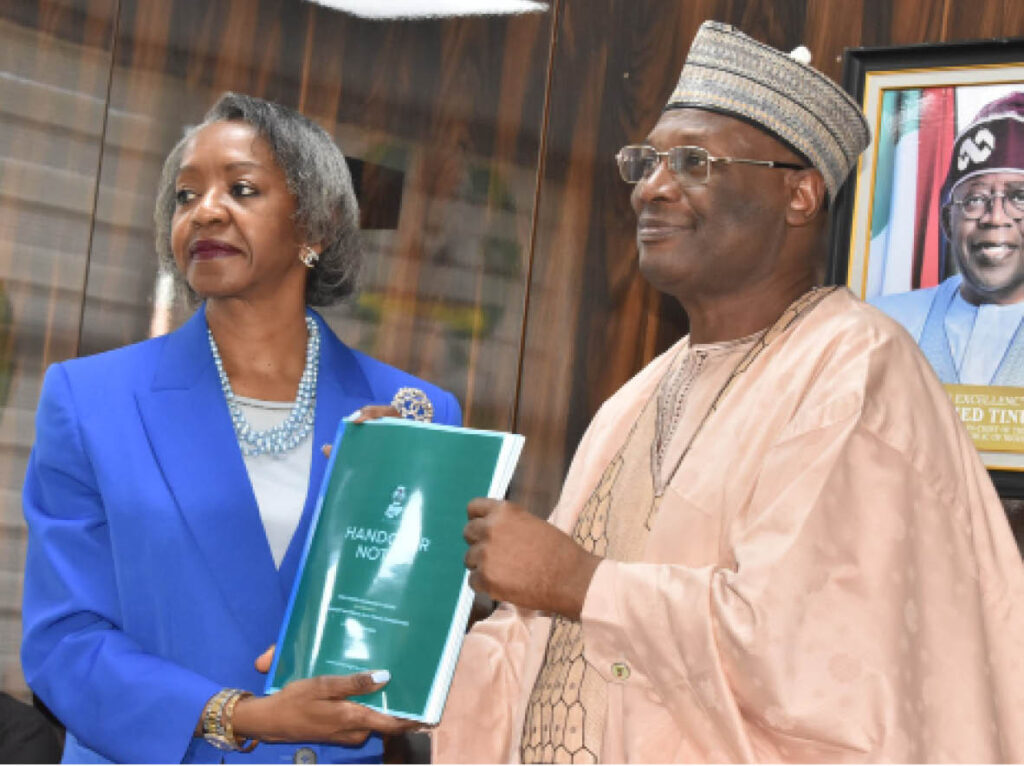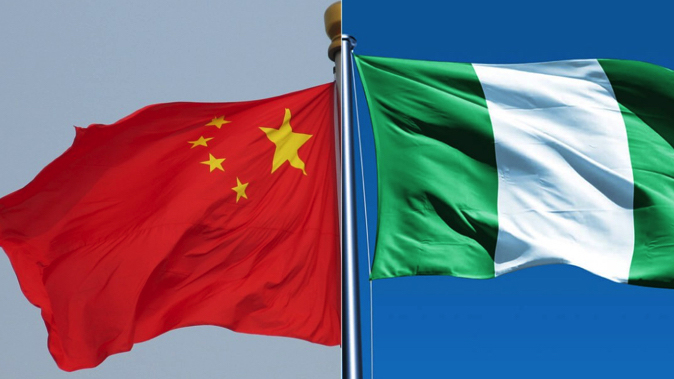
ABUJA – Professor Mahmood Yakubu has formally resigned as Chairman of the Independent National Electoral Commission (INEC), handing over power to National Commissioner May Agbamuche-Mbu, who will lead the Commission in an acting capacity.
The transition occurred Tuesday during a stakeholders’ meeting at the INEC headquarters in Abuja, marking the end of Yakubu’s nearly decade-long tenure. He is proceeding on terminal leave ahead of the official conclusion of his second five-year term.
In his farewell address, Yakubu stated his decision to step down was in strict compliance with Section 306, Subsections 1 and 2 of the 1999 Constitution (as amended). He announced that, following consultations with fellow commissioners, Agbamuche-Mbu—one of the most senior National Commissioners—would assume leadership pending the appointment of a substantive chairman.
“This will afford the appointing authorities adequate time to appoint a new chairman,” Yakubu said. “It will also enable the new chairman to quickly settle down to the task of conducting elections and electoral activities in Africa’s most demographically and logistically complex environment.”
Reflecting on his tenure, which began in November 2015, Yakubu expressed gratitude to the 24 National Commissioners, 67 Resident Electoral Commissioners, and INEC staff he worked with. He also thanked development partners, civil society groups, and members of the National Youth Service Corps, whom he praised as “among the most educated, most patriotic, and most knowledgeable election officials I have worked with.”
“Above all, I thank Nigerians for their comments as well as criticisms, which encouraged rather than discouraged us to persevere,” he added.
As a parting gesture, Yakubu presented two publications documenting the Commission’s work under his leadership: Election Management in Nigeria 2015–2025 and Innovations in Electoral Technology 2015–2025.
Before signing his official handover notes, the outgoing chairman outlined the significant tasks awaiting the Commission. He confirmed that INEC has already begun preparations for the 2027 General Elections and detailed a packed schedule of upcoming polls, including the Anambra State governorship election next month, and the Ekiti and Osun State governorship elections in 2026.
He highlighted critical areas requiring immediate attention, such as cleaning up the voters’ register, reviewing polling unit locations, and managing party primaries. Yakubu also pointed to persistent challenges like insecurity and natural disasters that complicate election logistics.
Under his leadership, INEC introduced major technological innovations, consolidating a biometric register of voters and digitizing many manual processes. “Indeed, we have made tremendous progress, but a lot more needs to be done,” he conceded.
“It is now my pleasure to sign my official handing over notes and present the same to Agbamuche-Mbu. And from that point, I will take my exit,” Yakubu concluded, before making his final departure from the helm of Nigeria’s electoral body. Professor Yakubu was first appointed by former President Muhammadu Buhari in 2015 and was reappointed for a second term in 2020.






More Stories
EU Reaffirms Support for Credible, Inclusive Anambra Governorship Election
China Articulates a Global South Vision for Fairer Governance
China Deepens Economic Footprint in Nigeria as Bilateral Trade Nears $22 Billion